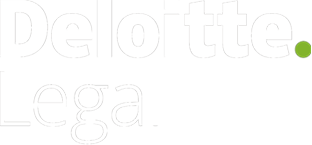Break Through With Blockchain - How Can Financial Institutions Leverage A Powerful Technology?
Blockchain has been poised to disrupt financial services. But with the sheer interest and investment by insurers, banks, investment managers, and commercial real estate firms, is blockchain a transformative technology instead of a disruptive force? We’ve compiled breakthrough research to show how blockchain can not only lower the risk of fraud, it can increase efficiency, improve customer loyalty, and make your organization smarter.
Blockchain to blockchains: Broad adoption and integration enter the realm of the possible
Now that everyone is getting comfortable with blockchain platforms, what’s next? Companies should look to standardize the technology, talent, and platforms that will drive future initiatives—and, after that, look to coordinate and integrate multiple blockchains working together across a value chain.
Read the report here.
Reality Check: Debunking myths about blockchain
Few enterprise technologies today are as misunderstood as blockchain. That a simple Internet search produces a cornucopia of articles with titles such as "WTF Is Blockchain?" or "A Blockchain Explanation Even Your Parents Can Understand" suggests that for many, the world of shared ledgers, protocols, and consortiums remains opaque. With this in mind, join us as we debunk tech myths and correct a few common misconceptions about blockchain and its enterprise potential.
Read the report here.
When two chains combine: Supply chain meets blockchain
In an increasingly digitized world, emerging technologies, such as blockchain, afford organizations the opportunity to drive business value throughout their supply networks. We now have safer and more efficient ways to connect with business partners as well as to track and exchange any type of asset. The ability to deploy blockchain technologies to create the next generation of digital supply chain networks and platforms will be a key element in business success.
Read the report here.
Initial coin offering: A new paradigm
We have all seen or heard the sensationalized headlines about Initial Coin Offerings, or ICOs. But what exactly are these events? Will they really disrupt venture capital as a means to fund development? Are they a sign of an economic bubble, or is there something truly worth considering under the surface? In this paper, we review the fundamentals of ICOs that have taken the market by storm.
Read the report here.
Taking blockchain live
Blockchain will be bigger than you can imagine, but getting there will be harder than everybody expected. Yet despite a unanimous consensus about blockchain benefits, why haven’t we yet seen any use cases go live at scale?
In order to guide conversations, we have identified a series of considerations and found that there are 20 essential questions, as outlined in our Blockchain Readiness Framework, to help define a winning commercialization strategy. Organized into six categories, each question serves as a mechanism to further evaluate the opportunity at hand. By addressing these questions early, the chances of successfully harvesting the benefits of blockchain can increase dramatically.
Read the report here
Blockchain & cyber security: Let’s discuss
Blockchain is gaining traction today, but critics who question the scalability, security, and sustainability of the technology remain. Deloitte member firms across the globe are collaborating to build blockchain capabilities to develop world class solutions and services for clients. In this paper Deloitte’s global blockchain and cyber security experts from around the globe have joined forces to assess the security of blockchain technology.
More specifically, this global perspective piece reviews and addresses:
- Blockchain’s current level of security from a system and data perspective for both public and private ledgers
- The CIA security triad model, composed of three areas; (1) Confidentiality, (2) Integrity, and (3) Availability are referenced to assess the current maturity level of blockchain technology Authentication, Authorization and Audit (AAA), and Non Repudiation, fundamental security aspects for protecting information and designing/managing new systems and networks will also be addressed.
Read the report here.
Blockchain risk management: Risk functions need to play an active role in shaping blockchain strategy
Is your organization prepared for the new risks posed by the introduction of a blockchain framework? The successful adoption and operation of any new technology is dependent on the appropriate management of the risks associated with that technology. This is especially true when that technology is more than an application and is part of the organization’s core infrastructure, as is the case of distributed ledger technologies (DLT), a.k.a. blockchain.
Risk practitioners across industries are very excited about blockchain’s promise to help organizations minimize—and in some cases eliminate—the risks posed by current systems. Blockchain is being viewed as the foundational technology for the future re of risk management. However, as the technology continues to mature and many theoretical use cases begin to get ready for commercialization, it behooves the financial services industry to start focusing on a less discussed question: “Do blockchain-based business models expose the firm and market to new types of risk? And if so, what should firms do to mitigate these risks?”
Read the report here.
Digital transformation - Blockchain video series
Inspire – Blockchain: Blockchain, the technology that will have the greatest impact on the next few decades, has arrived.
The internet of value is here – are you ready? Blockchain explained: Have you been hearing the word blockchain everywhere but don’t really know what it is or how it works? Check out Deloitte’s two-minute explanation on how blockchain technology works and why everyone is talking about it.
Deloitte Digital Bank – Customer onboarding: Deloitte’s Digital Bank accelerator harnesses the latest technology to reimagine the customer onboarding and account creation processes for financial institutions.
The creation of a truly smart customer identity allows for a revolutionary onboarding process that is fast, cheap, and scalable.
Deloitte Digital Bank – Cross-border payments: Deloitte’s Digital Bank accelerator utilizes Blockchain technology and Microservices architecture to enable true peer-to-peer cross-border payments that are fast, cheap, secure and data rich. Check out our cross-border payments module.
To learn how financial institutions can leverage blockchain technology, click on the icon in the upper left corner of the video window and choose a video from the playlist above.
Blockchain in commercial real estate: The future is here
Blockchain technology has recently been adopted and adapted for use by the commercial real estate (CRE) industry. CRE executives are finding that blockchain-based smart contracts can play a much larger role in their industry. Blockchain technology can potentially transform core CRE operations such as property transactions like purchase, sale, financing, leasing, and management transactions. In particular, we have found that among the core CRE processes, leasing is well-suited for blockchain adoption. When we consider the processes and the need for smart contracts, leasing meets the prerequisites for using blockchain technology.
Read the report here.
Making blockchain real for customer loyalty rewards programs
Customer experience and brand loyalty are key for the success of financial services firms, and loyalty programs can make or break that success. As loyalty programs have been gaining popularity, they are also failing due to inefficiency and a lack of uniformity.
In this installment of Deloitte’s series on blockchain, we explore how this bitcoin technology can help realize the full value of customer loyalty programs. What may result? Gained efficiencies, reduced costs, and enhanced brand loyalty.
Read the report here.
Blockchain technology for investment management firms
Blockchain technology has the power to transform the asset management value chain—and the firms that adopt it early will reap the rewards. This report examines unique blockchain developments and provides a six-step guide to implementing blockchain. Position your firm for the future by advancing asset management technology.
Read the report here.
Turning a buzzword into a breakthrough for health and life insurers
Increasing costs, discerning customers, and innovative disruption are just a few of the challenges faced by health and life insurance companies. How can a cryptocurrency technology like blockchain potentially solve these problems, and more?
A crowdfunding research project—bringing together experts in blockchain, cybersecurity, health insurance, and life insurance—set out to discover how blockchain can help manage risks, cut costs, and improve customer satisfaction. The results are six realistic use cases that can positively impact health and life insurance companies. Turn concern into confidence by adopting blockchain.
Read the report here.
CIO Journal: Blockchain shows promise in financial services
Blockchain, the technology backbone behind bitcoin, has the potential to serve as an alternative to the current infrastructure necessary to create institutionalized trust. The distributed public ledger protocol can serve as a trusted intermediary, verifying transactions and providing confidence to all involved parties. While blockchain efforts are still in the early stages, some financial services institutions are already working toward using the technology to transform long-standing business processes.
Read the CIO Journal: Blockchain shows promise in financial services here.
Over the horizon: Blockchain and the future of financial infrastructure—Research from Deloitte & the World Economic Forum
The transformation of the financial services industry is top-of-mind for everyone in the field. As digitization has “changed the game” for all industry sectors, distributed ledger technology, also known as blockchain, has emerged as a hot topic. But how can this technology help financial firms? This report from Deloitte and
World Economic Forum takes a pragmatic approach to answering this question.
Read more about Over the horizon: Blockchain and the future of financial infrastructure—Research from Deloitte & the World Economic Forum here.
Blockchain: Enigma. Paradox. Opportunity
There are new and emerging opportunities for organizations in all sectors to create and deliver compelling services to their customers using the power of disruptive innovation. As organizations formulate their plans for the coming months, this paper aims to help business and public sector leaders understand the cultural and organizational challenges that are inevitably brought by the use of blockchain technologies and provides them with the insights they need to overcome them.
Read more about Blockchain: Enigma. Paradox. Opportunity here.
Reading the global payments radar: Scanning for opportunities and potential threats in the payments market, Ninth edition
The global payments landscape is at a pivotal juncture: Economic recovery coupled with rapid innovation is redefining payments as an engine for growth. Continued improvements in credit quality and encouraging employment numbers signal increased demand for Payments related services and continue to further our optimism for growth for the industry. While rising interest rates will continue to define the economic climate in the forthcoming months, it is imperative that leading issuers approach an encouraging growth environment cautiously.
Then there’s the blockchain. This underlying technology for cryptocurrencies may be the lasting innovation that will revolutionize the payments landscape. Blockchain technology enables the transformation of a typical bank facilitated ledger system into a distributed ledger system, making value transfer and settlement more transparent, faster, cheaper, and safer.
Read more about Reading the global payments radar: Scanning for opportunities and potential threats in the payments market, Ninth edition here.
Please click on the image to enlarge or click here to download the infographic.
Blockchain allows for the secure management of a shared ledger, where transactions are verified and stored on a network without a governing central authority. Blockchains can come in different configurations, ranging from public, open-source networks to private blockchains that require explicit permissions to read or write.
key contact

Jim Jamison
Partner
Hongkongjimjamison@deloittelegal.com.hk



